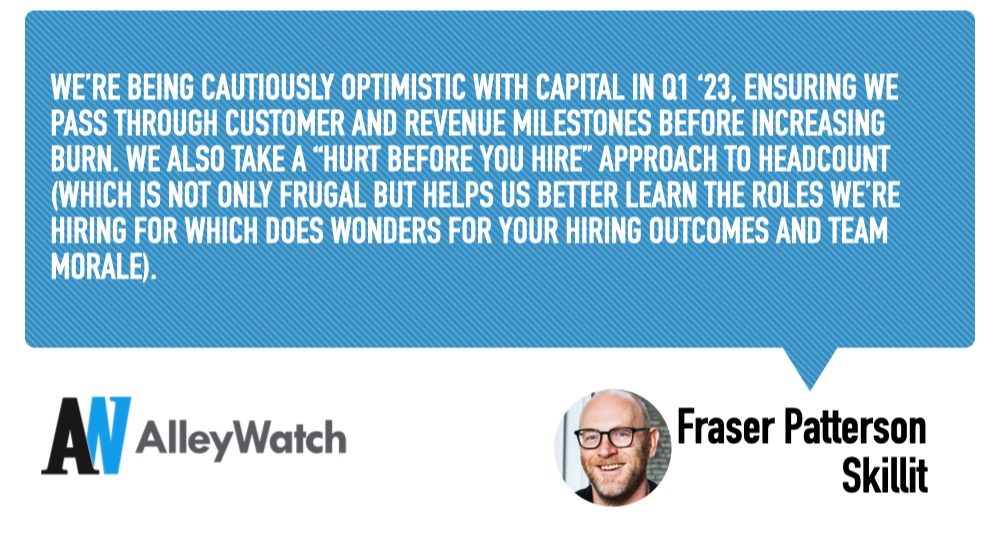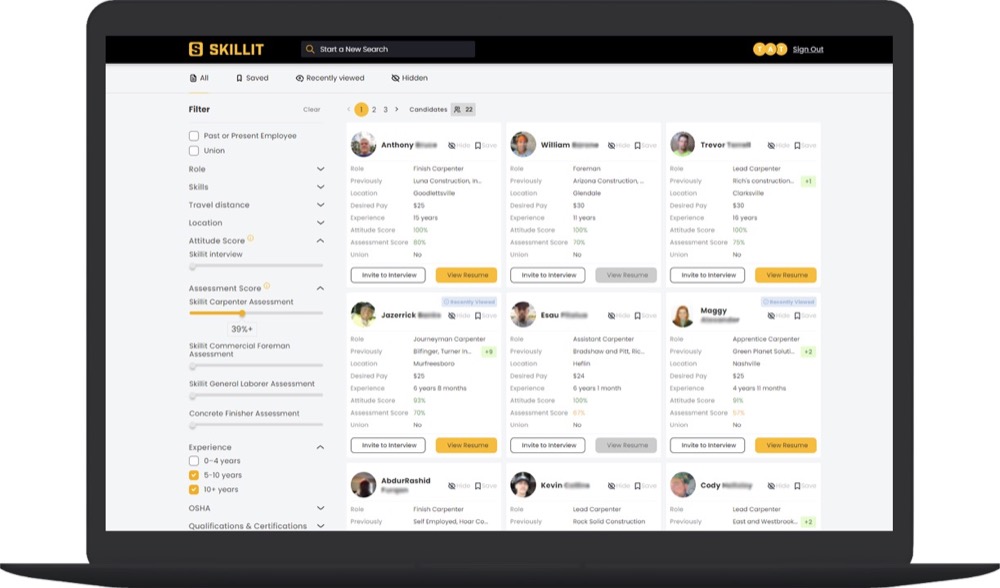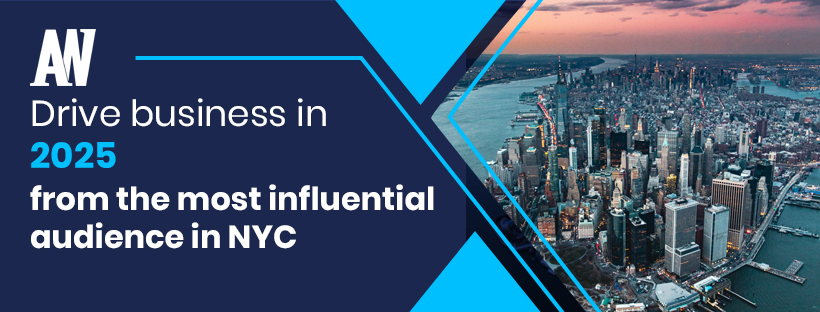According to Associated Builders and Contractors, the construction industry needs to attract at least 650,000 additional workers in addition to the normal place of hiring to keep up with the demand for labor. The Infrastructure Investments and Jobs Act is only adding to the labor shortage for qualified and skilled construction professionals. The industry has historically been underserved by technology in terms of labor management and development. Skillit is a recruitment platform that’s exclusively focused on full-time construction personnel. The company has built a series of trade-specific assessments to vet industry professionals and provide hiring contractors the confidence to know their newest hires sourced from the platform will be able to add value immediately. Using a data-driven approach, the company is able to map out recruitment in the industry and provide market insights. For contractors, this means attracting more candidates that accept offers through competitive pay, reducing the time-to-hire, and reducing the cost per hire. Workers are able to showcase and build their skills and access a centralized destination for new opportunities. Skillit is free for job seekers and offers a subscription for hiring contractors.
AlleyWatch caught up with Skillit CEO and Founder Fraser Patterson to learn more about the inspiration for the business, the company’s strategic plans, recent round of funding, and much, much more…
Who were your investors and how much did you raise?
Skillit raised a $5.1M seed round led by Building Ventures with participation from MetaProp, HOLT Ventures, Great North Ventures, 1Sharpe Ventures, and Takeoff Capital.
Tell us about the product or service that Skillit offers.
Skillit is a data-driven recruiting platform for skilled, full-time construction labor that dramatically improves the percent of offers accepted, time-to-hire, and cost-of-hires for top ENR contractors.
What inspired the start of Skillit?
 From my personal experience as a general contractor and carpenter, I saw first-hand the challenges in the industry. Skillit is on a mission to solve the skilled labor crisis by delivering technology and data solutions that meet the needs of both skilled workers and construction companies alike.
From my personal experience as a general contractor and carpenter, I saw first-hand the challenges in the industry. Skillit is on a mission to solve the skilled labor crisis by delivering technology and data solutions that meet the needs of both skilled workers and construction companies alike.
How is Skillit different?
Skillit takes a data-driven approach to ensure the right skilled workers are connected to the right contractors at the right time. Compared to traditional recruiting methods, Skillit is delivering: 10x qualified candidates, over 2x retention rate, and saving 50 hours per hire.
What market does Skillit target and how big is it?
Skillit is a technology solution for the construction industry. We serve top ENR contractors that are typically doing upwards of $1B in revenue per year and the skilled labor workforce that are the foundation of the built world that makes up $1.6T in annual construction spending annually.
What’s your business model?
Skillit provides its platform for contractors via a subscription model so that they can recruit candidates directly from the platform when they need to. Skillit is free for workers, and always will be.
How are you preparing for a potential economic slowdown?
We’re being cautiously optimistic with capital in Q1 ‘23, ensuring we pass through customer and revenue milestones before increasing burn. We also take a “hurt before you hire” approach to headcount (which is not only frugal but helps us better learn the roles we’re hiring for which does wonders for your hiring outcomes and team morale).

What was the funding process like? S
Skillit is my third contech startup (and second in New York!) and from that prior experience I have developed a fairly opinionated approach to fundraising, in particular the type of investors I want to have join us on our journey. That coupled with tons of research and preparation to tilt the outcome in our favor saw our seed fundraise go fairly smoothly, certainly when compared to prior fundraises as a younger founder.
What are the biggest challenges that you faced while raising capital?
Managing my own psychology. Venture fundraising is binary, you either raise or you don’t, and that’s a difficult needle to thread when you’re alone with your thoughts, especially on a journey filled mostly with rejection. It’s a fine line between being confident and deluding yourself, I think you have to run an honest process with your investors but primarily with yourself.

What factors about your business led your investors to write the check?
I believe Skillit’s investors were inspired by the knowledge, passion, and solution the entire Skillit team brings to bear for solving today’s skilled labor crisis.
What are the milestones you plan to achieve in the next six months?
We’re primarily focused on delighting our customers with a product they love. Additionally, we have goals to increase the predictability of our revenue, the defensibility of our product, the maturity of our team, and the number of roles and regions accessible to our customers on our Craft Recruiter platform.
What advice can you offer companies in New York that do not have a fresh injection of capital in the bank?
Every startup is building something different at different stages but generally speaking, I’d do everything humanly possible to achieve and prove customer demand, freeze or slash burn, hone your story, and furiously source and engage with new and existing investors. For pre-seed startups right now there’s tons of capital and the macro climate has had little impact there yet. Go get funded!
Every startup is building something different at different stages but generally speaking, I’d do everything humanly possible to achieve and prove customer demand, freeze or slash burn, hone your story, and furiously source and engage with new and existing investors. For pre-seed startups right now there’s tons of capital and the macro climate has had little impact there yet. Go get funded!
Where do you see the company going now over the near term?
With this funding, Skillit will invest further into the platform and expand into other regional markets nationwide.
What’s your favorite coffee shop or location in the city to hold a meeting?
Well, before it closed it was Coffee Shop in Union Square. These days it’s a walk & talk in Central Park.





